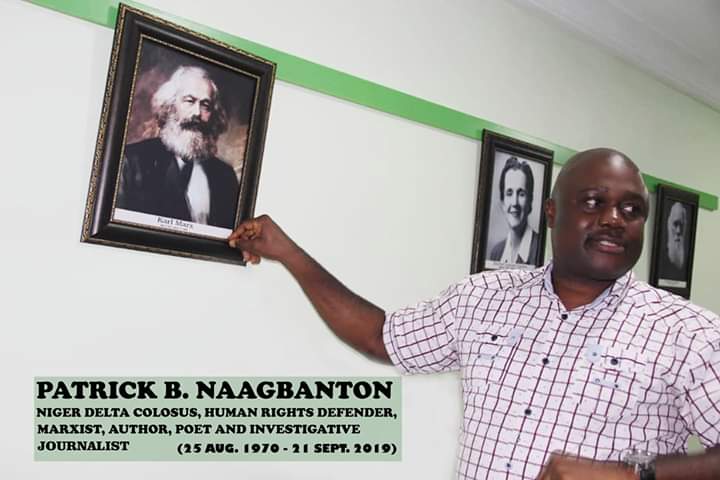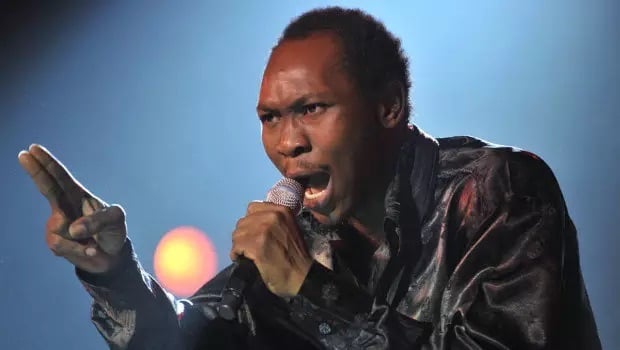The Centre for Environment, Human Rights and Development (CEHRD), a non-governmental organisation, has announced the death of its founder, Patrick Naagbanton, 49-year-old activist, critic and journalist.
According to CEHRD, Naagbanton was hit by a reckless driver in Port Harcourt on September 13. He was taken to hospital where he was until September 21, when he passed away.
Naagbanton was dedicated to the struggle for the environmental protection of Ogoni land. He dared the nozzle of bleeding guns when the country was in the throes of military dictatorship. Like his mentor, Ken Saro Wiwa, he did not relent in the fight for his people as his writings amplified the plight of the Ogoni people to the world.
He was a man who was fearless in confronting the establishment. In January, 2011, Amnesty International asked that he should be given urgent protection following death threats over his work.
Advertisement
“He has received a number of death threats in the last two weeks for his work on environmental, human rights and health problems in the Niger delta region in Nigeria. Write now to the Commissioner of Police to demand that Patrick is protected!” the organisation wrote.
HIS BEGINNINGS
Naagbanton was born on August 25, 1970. He hailed from Bodo, a community in Ogoni, Gokana local government area of Rivers state. In his early years as a journalist, he worked at Beacon newspapers, a US based publication, and the Environmental Rights Action (ERA). In 2005, he established CEHRD, which conducts research, advocacy and campaign in support of communities in the Niger Delta area.
Advertisement
FEARLESS ACTIVIST
Naagbanton was described as a fearless and inspirational human rights champion who dedicated his life to helping others by Amnesty International.
“Patrick’s life work was to campaign for justice and defend the rights of ordinary Nigerians. He leaves behind an enormous legacy — not only in terms of all those people he helped, but also the countless activists he mentored and inspired,” Kumi Naidoo, Amnesty International’s secretary-general wrote in a tribute.
“Patrick was a highly skilled and effective human rights investigator in one of the riskiest parts of the world He had an incredible contact book, and liked to travel by public transport to know what ordinary people were talking about. He was charming, charismatic, selfless and courageous. Amnesty International has lost a close friend.”
Advertisement
All through his life, he never lost sight of the situation in his region, the Niger Delta, which has suffered much devastation from pollution, and has endured years of militancy, high crime levels, and violence.
ADVOCACY FOR THE CLEAN-UP OF OGONI LAND
Naagbanton started out as an activist in the early 1990s when Nigeria was under a military regime.
He was arrested and harassed a number of times by the military. In 1996, he was held in solitary confinement for more than a month. The year before, the military regime of Sani Abacha executed his mentor, Ken Saro Wiwa. But he was undeterred by these challenges; he continued his activism underground; writing on the human rights abuses of the regime and the devastating activities of oil companies in the region.
Advertisement
“When you mention Ken, you remind me of a very painful time in my life,” he told a Canadian media organisation.
“Apart from knowing Saro-Wiwa as a person, I fell in love with his writing, the way he engaged with the public.”
Advertisement
LEGAL VICTORY
Naagbanton and his team at CEHRD were instrumental in the success of one of the most important international corporate accountability cases in recent years.
Advertisement
He sued Shell Petroleum Development Company (SPDC) at a high court in London for the pollution of Bodo, his native home, and won compensation for the community.
In a settlement with the community, Shell agreed to pay $70 million (£55 million) in compensation for the damage caused by two massive oil spills.
Advertisement
“Shell’s admission of liability for two massive oil spills in 2008-09 in my village of Bodo in the Niger Delta is a step forward in the long struggle for corporate accountability. An impoverished village that yesterday lay in ruins has today felt a welcome glimmer of hope and justice,” he said.
“We are happy with the news that Shell could be forced to clean up the environmental devastation it has caused and to pay more than $400m in compensation. But our jubilation is overshadowed by more than five decades of environmental and social injustice yet to be addressed.”
In 2009, he also helped the relatives of Saro Wiwa file a case against Shell in a US court for their alleged role in his death. The company later settled out of court, paying the family $15.5 million, though it did not accept liability.
AUTHOR, POET
Besides advocacy, Naagbanton loved to write. He wrote for newspapers and published several volumes of poetry. His work has been featured in The Guardian UK, Sahara Reporters and other media platforms.
In one of his poems entitled, ‘Fury of the Fisher Woman’, he lamented death and defiance. And the day Saro Wiwa and his eight kinsmen were executed, he penned a popular poem christened the ‘Hangmen’.
“Their banter of blood shall soon end
And I shall sing our funeral songs
They shall weep as we are weeping
With the troubled tribe,” he wrote.
Naagbanton is now with his beloved mentor.
Add a comment







